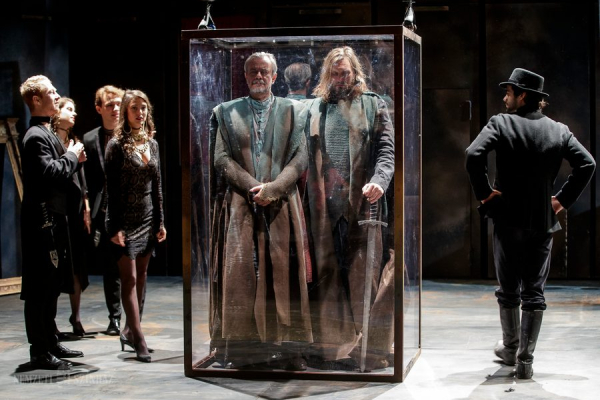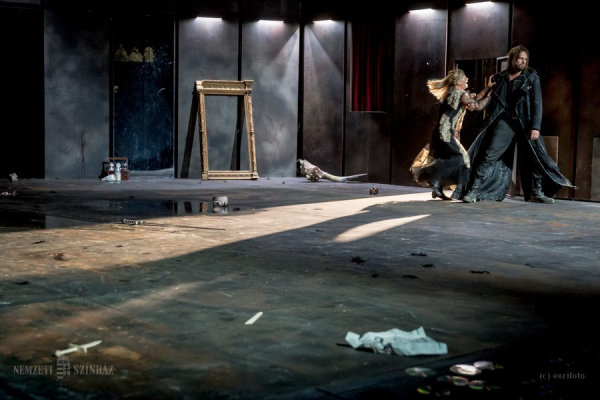
Bánk bán (The Viceroy Bánk) 16
Ban Bánk is one of the greatest masterpieces of Hungarian drama literature, on a par with Csongor and Tünde or The Tragedy of Man. In his review, Ferenc Kulin argues that the protagonist of József Katona's play did nothing else wrong, but trying to shake off the sweet chains of family commitments in order to fulfill his duties as a politician. Rather than committing a moral or legal infringement, he opposed the power of love, and therefore he was meted out a fate of complete destruction. In Katona's world, this endeavour, doomed to certain failure, is tragically symptomatic to modern existence, where man is forced to gave up spirituality for law and order.
Having started to write the first draft in 1814, József Katona's play was first published in Kecskemét, in 1820. The author did not live long enough to be present at the premiere, which took place in Kassa in 1833, and saw legendary actress Déryné play the part of Melinda. In Pest, the piece was first performed in 1834. The first show in the National Theatre occurred in 1839. On 15 March 1848, the National Theatre turned the play into a gala performance. After the years of repression following the Revolution, starting from 1858, Ban Bánk became a popular centrepiece of the repertoire of both the National Theatre and other theatres. Erkel Ferenc adapted the play into an opera (with the libretto signed by Béni Egressy), which premiered in the National Theatre in 1861.
Attila Vidnyánszky had already directed Ban Bánk as an opera piece and a play, this latter being performed in the National Theatre in 2002. This show, which featured an expressive reenactment of the civil war at the time, heavily divided the public and generated some extreme responses. The staging of the original Ban Bánk in the Csokonai Theatre of Debrecen was another bold gesture, and an event of historical significance for the Hungarian scene of classical music, as it featured the original musical construction by Ferenc Erkel and the libretto of Béni Egressy, providing a much closer interpretation of the play to what Katona had originally intended.
Attila Vidnyánszky proposes to adapt Ban Bánk to chamber theatre, offering to bring the dramatic tension, the language of utmost passion to the public, which, according to Antal Szerb, will bring about catharsis in its classical and tragical sense by "captivating the attention from the first to the last intonation". This approach will reveal whether it is still possible to present the web of interpersonal conflicts woven into the fabric of the play in a way as to make the younger generation perceptive to questions of national survival, with regard to both the present and the past.



